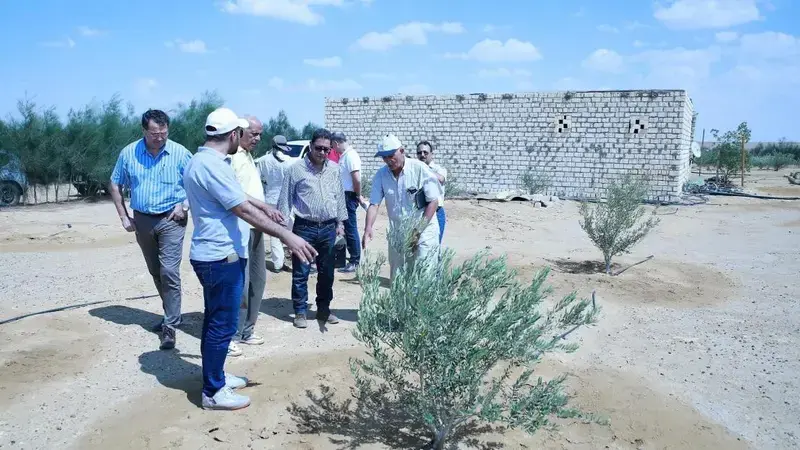Contributing to Egypt’s 1.5 Million Feddan project

Wadi El-Farigh, Egypt – The arid Wadi El-Farigh area of Egypt’s Western Desert lies at the heart of Egyptian government’s ambitious “1.5 Million Feddan” project (1 feddan = 1.038 acres), which aims to reclaim its uninhabited marginal or desert lands for agricultural use in response to fast-growing population and increasing water shortage.
ICARDA’s senior team went on a mission to the area, specifically to investigate how it could help cultivate crops in El-Moghra area, which has one of the three aquifers in Wadi El-Farigh.
“As they say, if you can grow crops on El-Moghra, then you can grow them anywhere,” said Aly Abousabaa, ICARDA’s director general. “I can see how people are fighting to survive in this harsh desert conditions.”
In a meeting in July, Minister of Agriculture H.E. Ez El-Din Aboustate raised as a point ICARDA’s assistance with 1.5 million feddan. Other topics of discussion included water scarcity, new cultivars, and making technologies easily available to the country’s smallholder farmers.
El-Moghra is characterized by low rainfall and high evaporation. The aquifer contains groundwater, which can be used for irrigation. The communities grow salt-tolerant plants, such as jujube and olive trees, and some pomegranates. Some have made ambitious attempts to keep fish farms. They use solar system to generate electricity and to draw water from underground.
“Obviously, we won’t be able to grow wheat here, but we might be able to grow barley or quinoa, which the Egyptian government is also promoting,” said Aladdin Hamwieh, ICARDA’s biotechnologist and regional coordinator of Nile Valley and Red Sea program. ICARDA’s senior team has begun working on a proposal and will revisit the area.
ICARDA and Egypt have partnered since 1979 to strengthen the resilience of Egypt’s agricultural sector and resource-poor farmers, enhancing their access to improved crop varieties and innovative technologies and solutions.
